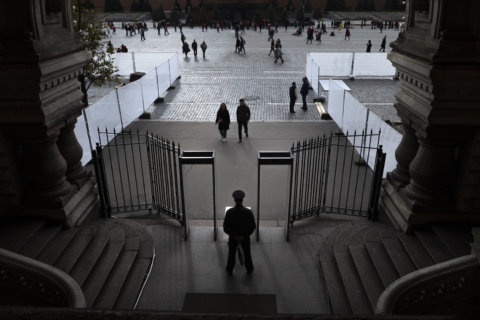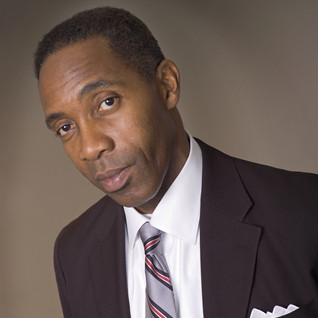In March 2016, WTOP national security correspondent J.J. Green began investigating the suspicious deaths of Russian diplomats and others around the world linked, in some way, to the Kremlin. Some of them died in the U.S. — in New York and D.C. The deaths of some were deemed “natural.” Others were obviously murdered. The investigation, which also examined failed assassination attempts, revealed a persistent pattern and a recurrent scheme, involving money, power and revenge. In the WTOP series “Assassins Inc.: The Kremlin’s secret squad of killers,” dozens of people, including victims, their family members, diplomats, journalists, U.S. intelligence, U.S. law enforcement officials and sources, members of Congress, and experts were interviewed to gain a better understanding of how this deadly ring of killers operates.
WASHINGTON — During the investigation of this series of reports, five key elements jumped out:
- Americans are on their target list.
- Russian hit squads are operating in the U.S.
- U.S. authorities were warned about it years ago.
- They are not likely to change their aggressive behavior, which may include stateside killings.
- There is a widespread reluctance to talk about the threat of more assassinations and what is being done to counter the threat in the U.S.
The shooting of Paul Joyal, a Vladimir Putin critic, in Adelphi, Maryland in 2007, seems clearly to have been an assassination attempt and not a robbery as was previously determined by police. In hindsight, it was likely a harbinger of things to come. The still unsolved case, against the backdrop of increasingly aggressive Russian intelligence operations around the world today and the uptick in suspicious Kremlin linked deaths, requires a new look at what happened in his and other cases.
Another case deserving of a fresh set of eyes is the death of Russian oligarch Mikhail Lesin in a Washington, D.C. hotel in November of 2015. According to a report by former British Intelligence officer Chris Steele prepared for the FBI, it was murder.
It seems to add more credence to suspicions — common among many current and former law enforcement and intelligence officials — that Kremlin-linked hit squads are operating inside the U.S.
Steele’s report to U.S. authorities several years ago appears to be proof that law enforcement officials may be thinking, at the very least, about what to do about Russian assassins lurking in the homeland.
Read the complete “Assassins Inc.: The Kremlin’s secret squad of killers” series
- Part 1: The Kremlin’s secret squad of killers
- Part 2: The Russian assassin’s business model
- Part 3: Russia’s deadly threat to the US
But the most bedeviling element is the reluctance by any agency to say anything about it — then and now. For consecutive months, I called the D.C. Medical examiner’s (ME) office in 2015 and 2016 to inquire about the outcome of the Lesin case. Each time, they said it wasn’t done but urged me to keep checking back. This seemed to be more than just customer service, but a quiet recognition that something wasn’t right about his case. When it was finished, the ME determined that he died of blunt force trauma with acute ethanol intoxication as a contributing factor. But the report did not answer the question about why it took so long.
Was there a reluctance to talk about it because it was an open case? If so, that’s understandable. But now, three years later, the case having been closed, there is still a pall over it and the heavily redacted 58 page Medical Examiner’s report remains mostly a mystery.
The silence about the Lesin case remains in place. As recently as Oct. 25, law enforcement, justice and intelligence officials declined to answer questions about the case — suggesting I file a Freedom of Information Act request.
Were — and are — U.S. officials trying to avoid antagonizing the Kremlin? A similar situation emerged in Britain after Alexander Litvinenko’s death in 2006.
Alex Goldfarb, a close friend of Litvinenko, who was poisoned by Kremlin agents, told the Target USA podcast that the British government took that exact position. He said “the criminal investigation by the police, as far as I know, went unhindered and very quickly, and produced the results, but they sealed the results essentially and tried to suppress or prevent them from becoming public for almost 10 years.”
The reason for that stance was clearly stated by Theresa May, British Home Secretary at the time. Matters of foreign policy and national security trumped everything else and were given a higher priority.
That led to a long and resolute campaign by Litvinenko’s widow Marina. She had to sue the British government to force a public inquiry into the death of “Sasha”, as she called her husband. A lot of sensitive information came out, but it was necessary in order for the British public and the world to understand what really happened to Litvinenko.
She eventually won.
The Lesin death case is riddled with Kremlin linked allegations. If you talk to current and former law enforcement officials, there is no doubt he was murdered. But the case is closed, or so it seems. One possible reason why that is there may be a wide ranging investigation into Kremlin money laundering underway, which the Steele report alluded to, that could involve some very prominent people. Keeping the Lesin death investigation open could interfere with attempts to get to the heart of that investigation.
The Skripal poisonings in Salisbury, England in March and the killings and “accidental “deaths of dozens of other Kremlin critics in the past four years around the world, seems to suggest there is a significant Kremlin-critic silencing operation underway. Sources tell me it’s not likely to slow down anytime soon, even under the mounting criticism of Russian interference in the political affairs of other nations — including the U.S.
The reason — confronting the Kremlin is an act that many governments are unwilling to do for fear of what they might do in retaliation.







